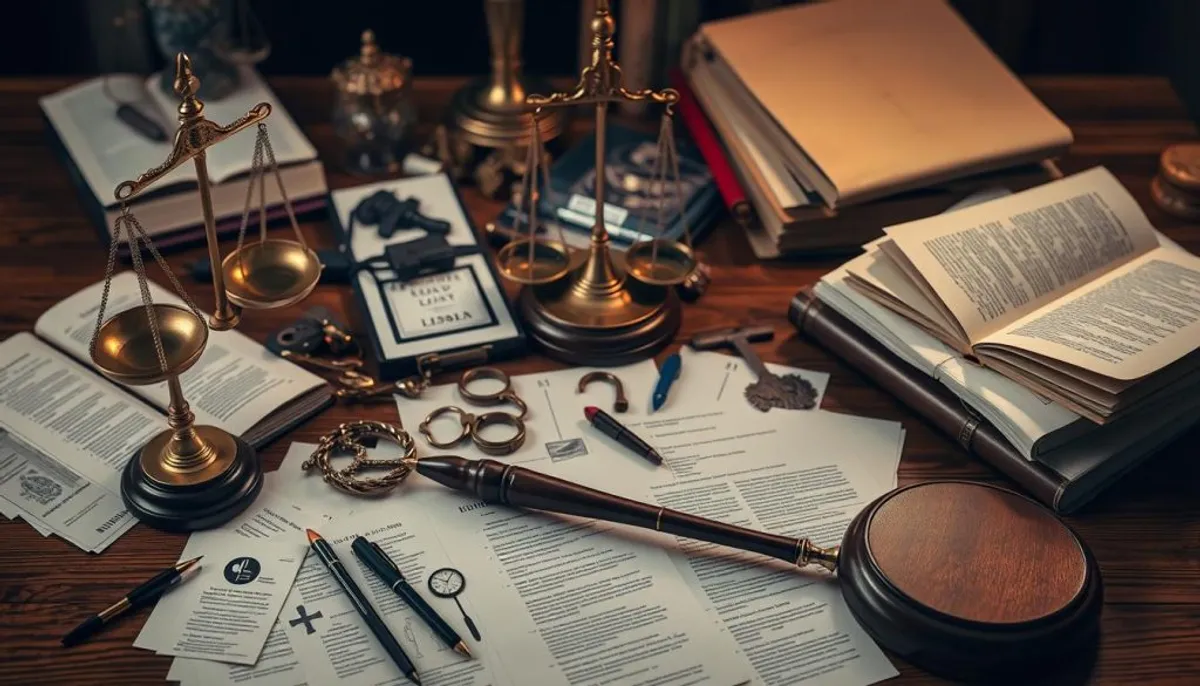
The legal culture is a crucial foundation for future students in law and legal professionals. It involves a deep understanding of the legal system, a solid base of general knowledge, and the ability to follow legal developments. This guide aims to equip you with these essential skills.
To succeed in the legal field, it is crucial to master specific vocabulary and connect different concepts. This skill enhances legal analysis and reasoning, vital skills for any legal professional.
The legal training goes beyond studying legal texts. It involves a thorough exploration of doctrine, an understanding of societal issues, and the ability to apply legal methodology. These aspects are crucial for developing critical and analytical thinking.
To refine your legal culture, diversify your resources. For example, the book “100 synthetic sheets” from STUDYRAMA offers a comprehensive overview of the legal and judicial system. It covers essential areas such as public, private, criminal, European, and international law, ideal for students and candidates for administrative competitions.
The fundamentals of legal culture
Legal culture is the foundation of any quality legal training. It covers the basics of law and constitutes the core of crucial legal knowledge for students and legal professionals. Additionally, there are interesting options such as cultural gift vouchers in France that can enrich the educational experience.
Understanding the importance of legal culture
A deep legal culture allows for the development of logical reasoning and addressing the challenges of law. It helps to understand laws and jurisprudence, essential skills in the legal field.
The role of legal culture in training
The legal training lasts three years and includes 180 ECTS credits. It covers 1656 hours of classes over the three years of the degree. The goal is to acquire more than 60 fundamental legal skills.
| Year | ECTS Credits | Hourly Volume |
|---|---|---|
| License 1 | 60 | 558h |
| License 2 | 60 | 542h |
| License 3 | 60 | 453h |
The essential components of a good legal culture
A solid legal culture is based on several pillars:
- Mastery of fundamental legal concepts
- Understanding the judicial system
- Ability to analyze and interpret legal texts
- Knowledge of current legal events
The training includes a mandatory internship of 8 weeks over the 3 years. This internship provides crucial practical immersion to reinforce theoretical knowledge and promote entrepreneurial development.
How to develop a legal culture
Learning law requires effective study methods and solid learning habits. To develop a robust legal culture, it is essential to create a daily routine. It is also crucial to wisely use the available legal resources.
Developing daily learning habits
Regularity is key to a solid legal culture. Dedicate time each day to reading legal articles or studying cases. This practice will allow you to gradually assimilate concepts and stay updated with current legal events.

Effectively using available resources
Take advantage of the many legal resources at your disposal. University libraries, specialized journals, and online platforms offer a wealth of information. Don’t hesitate to vary your sources to enrich your understanding of the law.
Establishing a study routine
Set up a regular study schedule. Alternate between different branches of law to maintain your interest. For example, you could dedicate 30 minutes each morning to civil law and then 30 minutes in the evening to criminal law. This structured approach will promote a lasting assimilation of legal knowledge.
| Format | Price |
|---|---|
| Printed book “Chronicle of a law student, Volume 1” | 15.95 € |
| Kindle version “Chronicle of a law student, Volume 1” | 10.99 € |
By adopting these practices, you will gradually strengthen your legal culture. Remember that perseverance is the key to success in learning law.
Digital tools to enrich your legal culture
The digital age has revolutionized the way we access legal knowledge. Digital tools are now essential for students and legal professionals. They offer unparalleled flexibility and accessibility.
Recommended mobile applications
Legal applications on smartphones are experiencing exponential growth. In 2019, the French spent 2.3 hours a day on their phones, a 27% increase in two years. Law students spend up to 3 hours a day, with 59% of them doing so. Applications like QuizUp and Ça m'intéresse make legal and general learning more enjoyable.
Essential online resources
Online resources are indispensable for staying informed. Websites of the State Council, the Court of Cassation, and the Constitutional Council provide accurate legal data. Online legal research databases are frequently consulted by professionals and students. They allow access to jurisprudence, rulings, and specialized journals.
Legal learning platforms
Online learning platforms offer a variety of tools. Revision sheets and flashcards, such as those from www.pamplemousse-magazine.co, are essential for many students. Online legal dictionaries offer mobility and additional features. Social networks dedicated to law, such as ClubHouse, allow students to share knowledge and participate in specialized discussions.
Familiarizing yourself with legal vocabulary
Understanding the legal jargon is fundamental to acquiring a solid legal culture. To expand your vocabulary, immerse yourself in reference works such as the “Legal Vocabulary of Cornu,” 2024 edition. This dictionary, consisting of 1112 pages, is a true asset for law students.
Regular reading of legal texts is essential. Discover manuals such as “Introduction to Law in 10 Themes” by Jean-Louis Halpérin or “Law of Obligations” by S. Porchy-Simon. These works will help you assimilate legal terminology in context.

For a practical approach, practice reading rulings, judgments, and orders. This practice will familiarize you with the language of the courts and refine your understanding of legal jargon in action.
The online resources should not be overlooked. The service-public.fr website offers clear explanations of many legal terms. Create vocabulary flashcards and review them regularly to anchor these new words in your memory.
By adopting these habits, you will gradually build a solid legal vocabulary, essential for your success in the field of law, while integrating concepts related to cultural education in Africa.
The importance of current legal events
Current legal events are a crucial foundation for cultivating a solid legal culture. They ensure constant updates on the latest legislation and allow for an understanding of current legal challenges.
Reliable sources of information
An effective legal watch requires access to reliable sources of information. Here is a selection of essential websites:
| Category | Number of sites | Examples |
|---|---|---|
| Legal news | 8 | Dalloz Actualité, Lextenso |
| Institutional sites | 7 | Légifrance, Constitutional Council |
| Instagram accounts | 4 | Droit_inc, Jurisguide |
Effective legal monitoring
A regular legal watch is crucial to staying informed. It is advisable to vary sources of information, integrating specialized media and general newspapers. This strategy fosters the acquisition of a critical mindset and a comprehensive view of legislative changes.
Analysis of legislative developments
The analysis of current legal events is essential for refining legal thought. It allows for understanding the impact of recent laws on legal practice and anticipating future transformations. This skill is highly valued in exams such as the CRFPA and the Grand Oral, where legal culture is assessed.
By regularly keeping informed about current legal events, you will gain a deep understanding of law and its transformations. This knowledge is an invaluable asset for your career in the legal field.
Essential documentary resources
To enrich your legal culture, it is crucial to turn to reliable and comprehensive documentary resources. Legal libraries offer unique access to a vast collection of books and legal journals. These are essential for refining knowledge in the field.
University and specialized libraries
University and specialized libraries are true treasures of legal documentation. For example, Dalloz Library allows access to over 1000 digital titles from the prestigious publishing house Dalloz. These resources are invaluable for students and legal professionals wishing to expand their knowledge.
Reference legal journals
Legal journals are essential sources of information. Platforms such as Lexbase offer 7 doctrinal journals and encyclopedias covering 34 areas of law. They contain 4.5 million decisions of French and European jurisprudence. Lextenso, on the other hand, provides access to 25 French legal journals and approximately 2.7 million judicial decisions.
Fundamental works
Basic works are crucial for building a solid legal culture. Lamyline offers more than 70 full-text books and 21 journals with up to 10 years of archives. Lexis 360 provides 86 annotated codes and continuous updates of the Jurisclasseur Encyclopedia. These resources are essential for any legal professional in training or practice.
RelatedRelated articles


